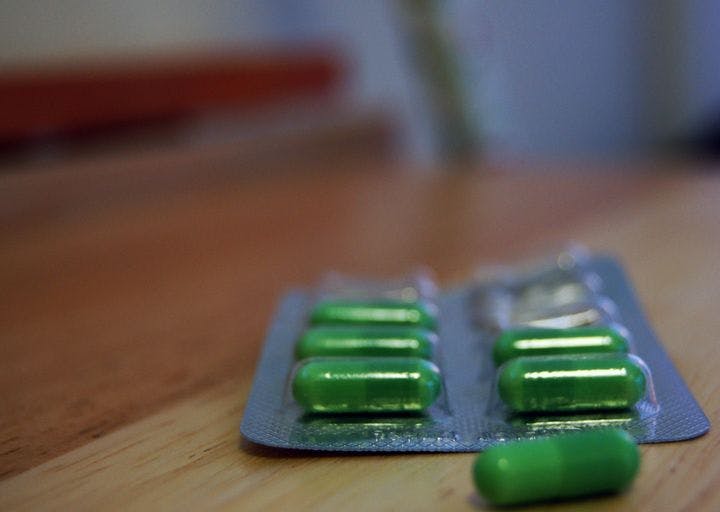Summer 2008
Better Living Through Chemistry
– The Wilson Quarterly
What's wrong with using drugs to improve the brain's performance?
While most people are willing to give cosmetic surgery a free pass, the debate gets stickier when it comes to enhancing human brains through artificial means. As Richard H. Dees points out, “People think that altering our brains tinkers with the core of our personalities and the core of ourselves. It changes who we are, and doing so seems wrong.”
Drugs already improve humans’ ability to think. Amphetamines, Dees notes, can help people to “learn skilled motor tasks, like playing the piano, more rapidly.” Other drugs help Alzheimer’s patients “improve their attention and memory.” Another class of drugs—Prozac is the best known—improve people’s sense of well-being, while beta-blockers, whose “widespread use among concert performers is legendary,” decrease stress and nervousness.
If individuals feel that neuroenhancing drugs improve their lives and cause no harm either to themselves or anyone else, why object to them?
Critics dispute the “no harm” argument on several grounds. The drugs’ long-term effects, for instance, are unknown. But Dees, an associate professor of philosophy and medical humanities at the University of Rochester, believes that limiting and closely monitoring the use of neuroenhancers can counter this concern. Others question the unfair edge the drugs might provide. What if someone scores higher on an SAT under the influence of a memory-improving drug? Dees dismisses this objection by comparing using the drug to procuring the services of a tutor. The unfairness lies not in the advantage the tutor gives, per se, but in the ability of some to afford the tutor. While this affordability argument might be extended to neuroenhancers, he still finds it “an odd place to look for a deep moral objection.”
There remain two philosophical areas that present more troubling considerations: human dignity and authenticity. Do the drugs simply provide users with an easy way to overcome life’s difficulties? Consider a concert pianist, gifted with an uncanny ability to play Rachmaninoff but paralyzed by stage fright. If a pill allows him to wow audiences at Carnegie Hall, does that diminish his achievement? While Dees believes that “overcoming obstacles builds character and makes us all better people,” he notes that “many technologies, from irrigation and permanent settlements to airplanes and air conditioning,” make life easier. Still, the argument is a slippery one: Morally, we know that we should not degrade others in order to advance our own ends, but do we degrade ourselves when we use available technologies, such as the “stage fright” pill?
This leads to a final objection to neuroenhancers: They “fundamentally alter an individual’s personality and create . . . an inauthentic life with artificial happiness.” Dees believes that a person’s “achievements and his relationships must be real before he can live a truly good and happy life.” From Aldous Huxley to the creators of The Matrix, social observers have warned about the dangers of creating a happy “reality” that is simply an illusion, and Dees agrees that “a good life must be connected to the reality of people’s lives and to the reality of their own accomplishments.” On this basis, he excuses drugs that enhance memory: They may make people perform better on tests but don’t create false memories. But Dees argues that we need to develop “a more nuanced view” regarding drugs that give a false sense of happiness. True, they may allow some individuals to overcome paralyzing grief or depression, but simply using “enhancements to separate people from the real world is morally bankrupt.”
* * *
The Source: "Better Brains, Better Selves? The Ethics of Neuroenhancements" by Richard H. Dees, in Kennedy Institute of Ethics Journal, Volume 17, No. 4
Photo courtesy of Flickr/Angelina
